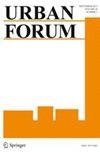“Nimble Sociality and Belonging”: an Ethnography of Migrants’ Responses to Bans on Associational Life During the COVID-19 Pandemic
IF 1.2
Q3 URBAN STUDIES
引用次数: 1
Abstract
Abstract Within the past few years, pandemics like HIV/AIDS, influenza, and SARS-CoV-2 have become common worldwide. The COVID-19 pandemic, which broke out recently, profoundly impacted the world. As part of containing this pandemic, lockdowns which put a moratorium on human mobility and associational life became a dominant measure. Yet these mobilities and associational life are the lifeblood of migrants and diaspora belonging. This paper examines the impacts of bans on associational life on migrants and, further, what migrants did to continue living in the absence of these associations during the COVID-19 pandemic. The paper is based on a case study of Lydiate informal settlement in Zimbabwe, where Malawian migrants have established an ethnic enclave to shield themselves from the precarity and injustices of foreign lands. Through convivial and digital ethnographic fieldwork, the paper revealed that bans on associational life disrupted community engagements and binding religious associational life, increased targeted violence and “othering,” and perpetuated stigma and discrimination and loss of ties with family and fictive kin. However, migrants restructured their associational life by adopting agile and new forms of belonging to get by, including relocating religious shrines to more secretive places or conducting religious ceremonies in the dark, drinking beer within the perimeter of the settlement, using of WhatsApp and instant messaging and WhatsApp groups for important community updates, and collective resistance. I termed these strategies “nimble forms of sociality and belonging,” meaning there are lithe mechanisms that migrants employ to further their sociality even when they are restricted.“灵活的社会性和归属感”:新冠肺炎大流行期间移民对禁止交往生活的反应的民族志
在过去几年中,艾滋病毒/艾滋病、流感和SARS-CoV-2等流行病在全球范围内变得普遍。最近发生的新冠肺炎疫情对世界产生了深刻影响。作为遏制此次大流行的一部分,暂停人员流动和交往生活的封锁成为一项主要措施。然而,这些流动性和联系性生活是移民和侨民归属感的命脉。本文探讨了禁止交往生活对移徙者的影响,并进一步探讨了在COVID-19大流行期间,移徙者在没有这些交往的情况下为继续生活所做的工作。这篇论文是基于对津巴布韦利底亚特非正式定居点的一个案例研究,马拉维移民在那里建立了一个民族飞地,以保护自己免受外国土地的不稳定和不公正。通过欢乐和数字民族志田野调查,该论文揭示了对社团生活的禁令扰乱了社区参与和有约束力的宗教社团生活,增加了有针对性的暴力和“他者”,并使耻辱和歧视永久化,并失去了与家庭和实际亲属的联系。然而,移民们通过采取灵活和新的归属形式来重组他们的交往生活,包括将宗教圣地搬迁到更隐秘的地方或在黑暗中举行宗教仪式,在定居点周边喝啤酒,使用WhatsApp和即时通讯工具以及WhatsApp群来获取重要的社区更新,以及集体抵抗。我把这些策略称为“灵活的社会性和归属感形式”,意思是即使移民受到限制,他们也会采用一些灵活的机制来促进他们的社会性。
本文章由计算机程序翻译,如有差异,请以英文原文为准。
求助全文
约1分钟内获得全文
求助全文
来源期刊

Urban Forum
Social Sciences-Urban Studies
CiteScore
2.90
自引率
0.00%
发文量
21
期刊介绍:
This journal publishes papers, which engage broadly with urban processes, developments, challenges, politics and people, providing a distinctive African focus on these themes. Topics covered variously engage with the dynamics of governance, everyday urban life, economies and environments. The journal uses empirical data to reinforce and refine theoretical developments in urban studies, draws on the specificities of the African context, and opens up geographically diverse conversations on African cities. Urban Forum welcomes papers that provide rich evidence from African cities and, in doing so, builds debate and theory that often remains peripheral to urban scholarship. The journal is open to research based on a range of methodologies, but prioritizes qualitative analysis and interpretation. With this mix, research in Urban Forum demonstrates the ordinary and the exceptional nature of urbanization in African cities.
 求助内容:
求助内容: 应助结果提醒方式:
应助结果提醒方式:


